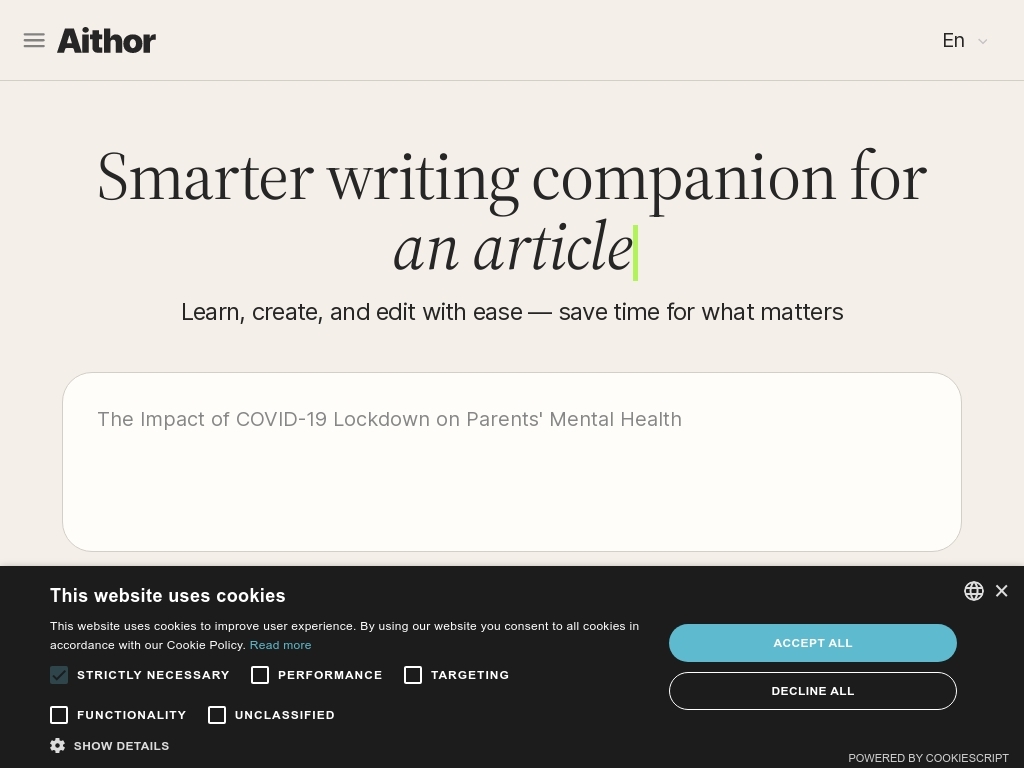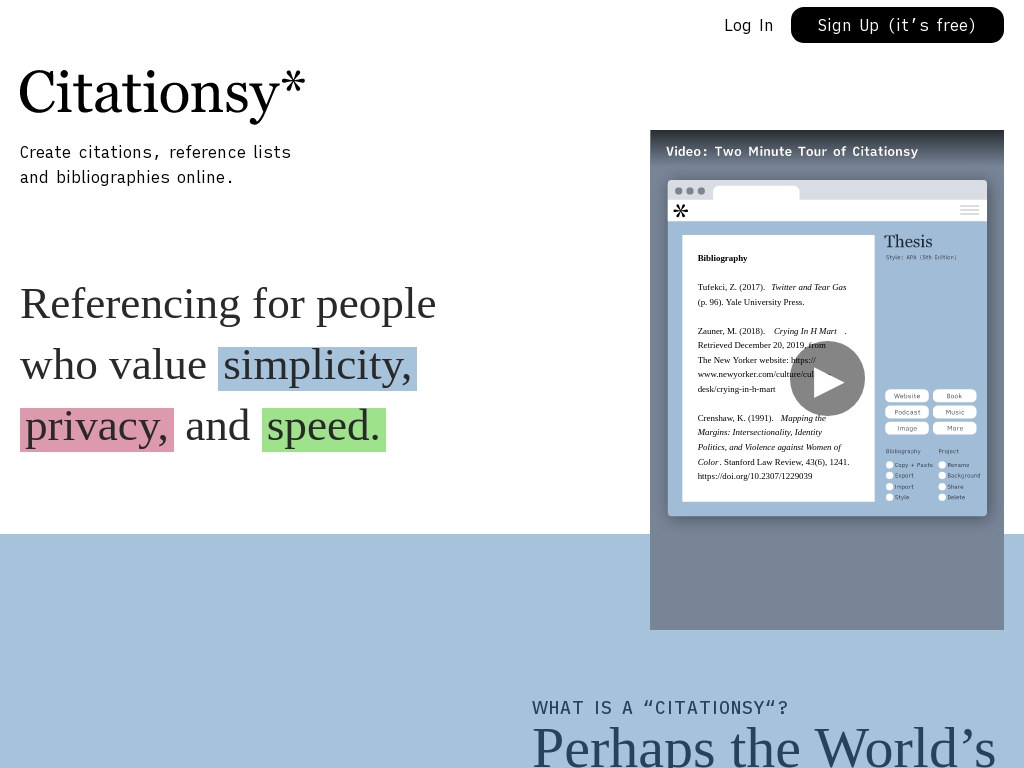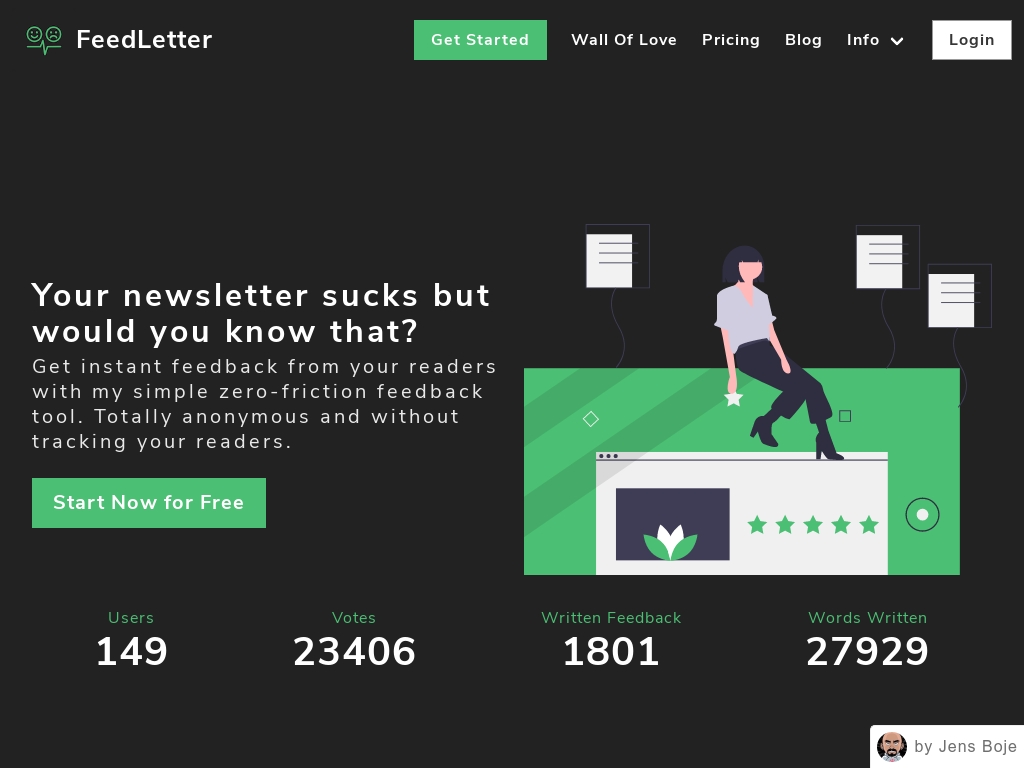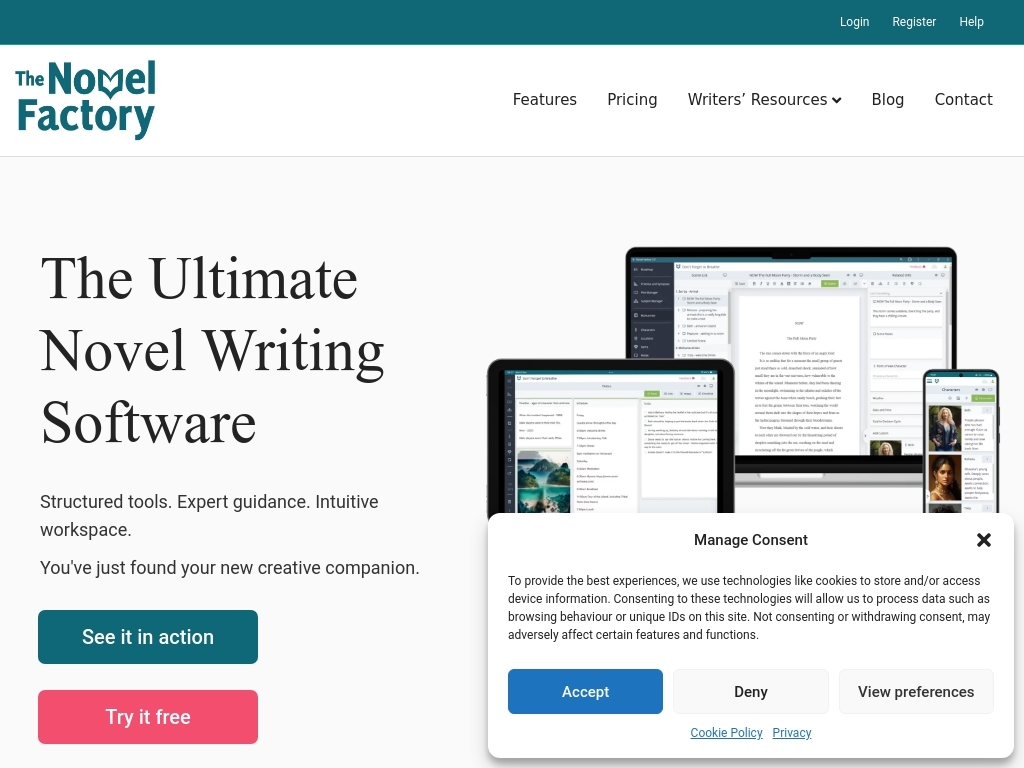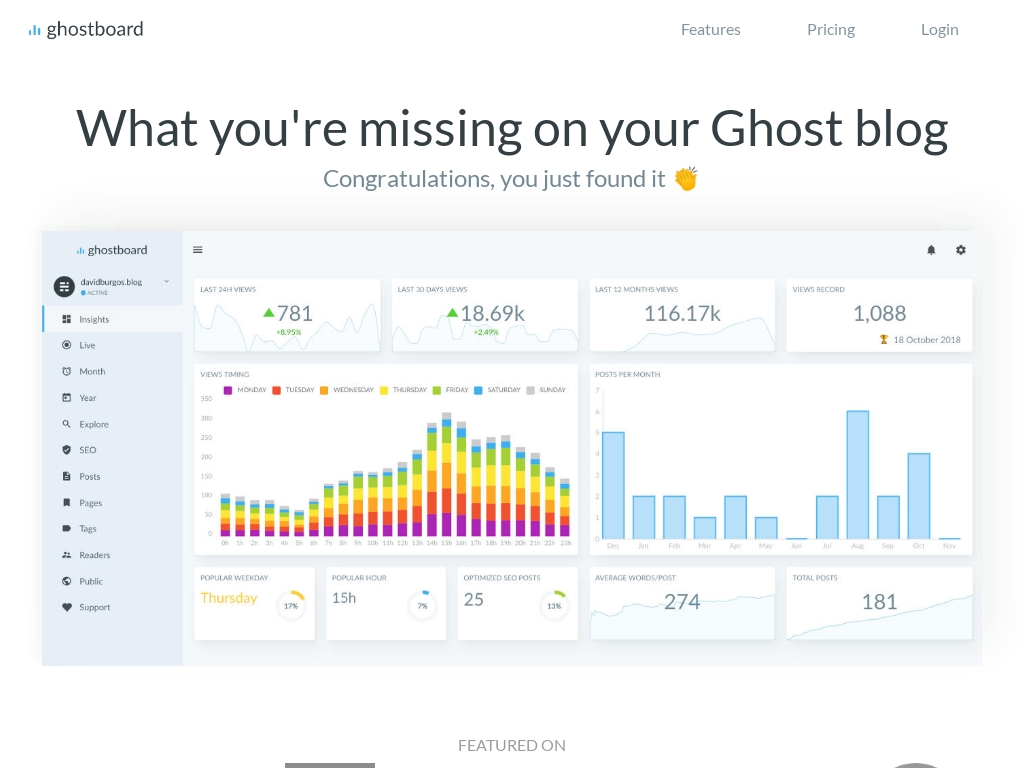
How Anton Built Letterly to Hundreds of Daily Installs in 48 Hours
Who is Anton Lebedev?
Anton Lebedev, the co-founder of Letterly, previously served as a Chief Product Officer and Product Manager, bringing his experience in product development to the business.
What problem does Letterly solve?
Letterly helps you quickly turn your spoken words into organized, clear text on-the-go, saving users time and making communication easier and more efficient.
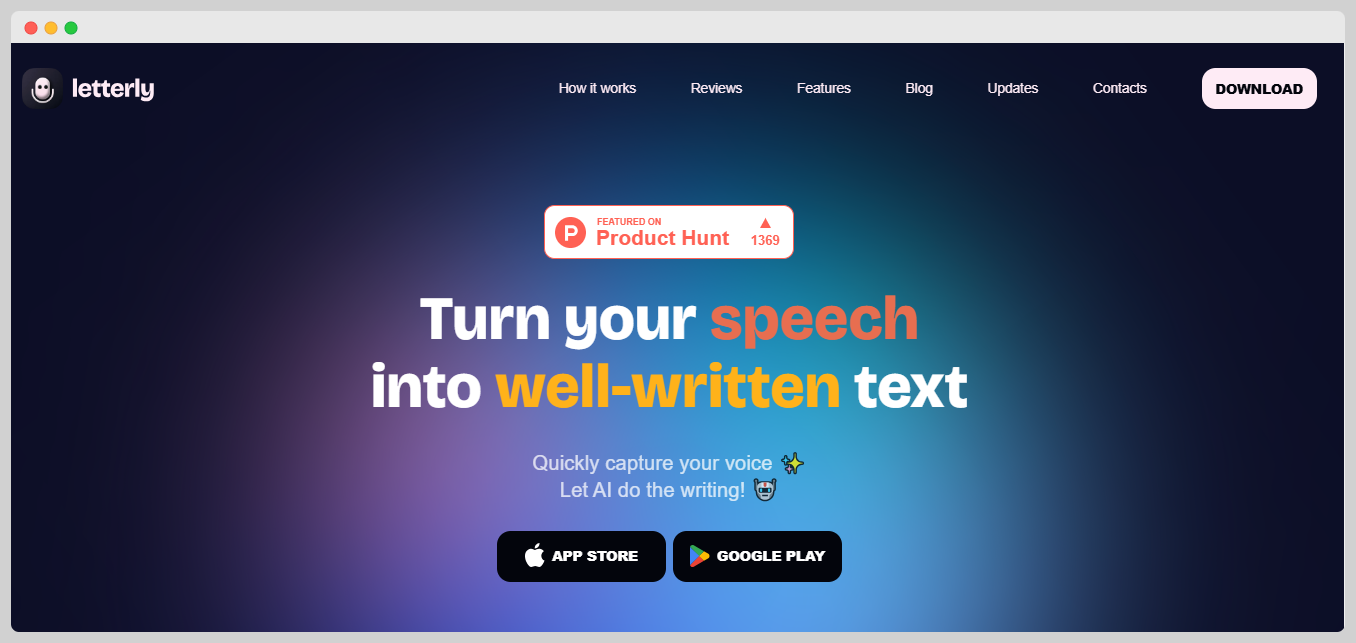
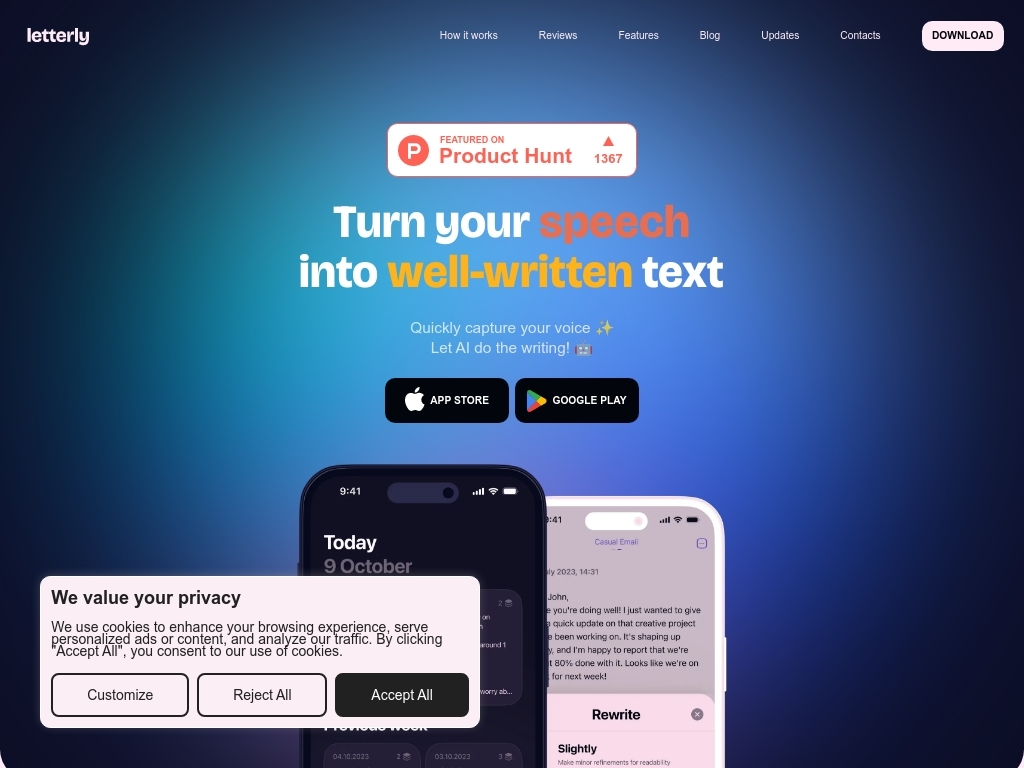
How did Anton come up with the idea for Letterly?
Anton Lebedev, the founder of Letterly, started by searching for a business idea that catered to his own needs and leveraged AI technology in a meaningful way. While there were existing tools for converting speech to text, Anton noticed that none offered a mobile app solution that allowed users to easily capture and structure their voice input on the go. This observation led him to focus on creating an app that could offer convenience and speed in transforming spoken words into clear, ready-to-use text.
Anton and his team were inspired by other products but were determined to create something distinct, targeting a need they felt was unmet. They believed that merely copying existing solutions would not be effective and aimed to carve out their own niche by providing unique competitive advantages. Listening to feedback and insights from early users, they worked diligently to refine and improve their app to ensure it met the demands of modern users.
Throughout the ideation process, one key lesson was the importance of not being entirely reliant on what competitors were doing. Instead, they focused on the specific problems they wanted to solve and delivered a distinct product that met those needs. This thoughtful and user-focused approach helped them to move confidently from idea to product development.
How did Anton Lebedev build the initial version of Letterly?
Letterly's initial product development took about three months before it was uploaded to the app store. The process involved one of the four founders and a hired developer who focused on building the mobile app. Although it wasn't quite a Minimum Viable Product (MVP), the team aimed to start selling it while collecting user feedback and analytics to guide future improvements. They utilized AI technology to enhance the app's transcription by rewriting spoken content into clear, structured text. The development process was challenging, as they had to carefully fine-tune their models, engaging linguists occasionally to ensure high-quality output that distinguished them from competitors.
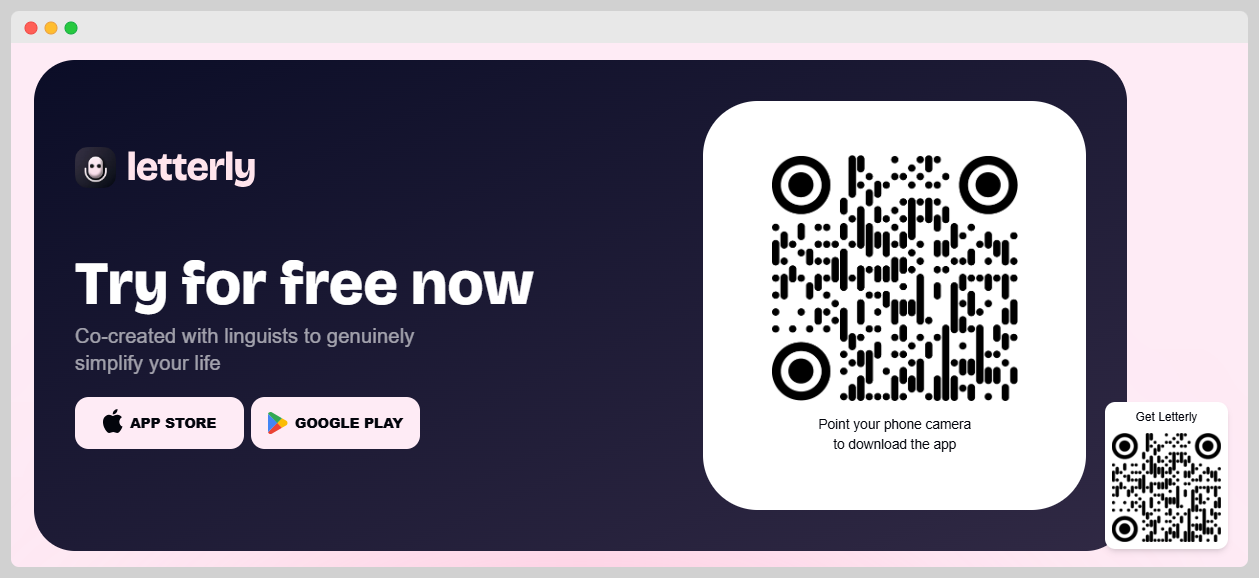
How did Anton launch Letterly and get initial traction?
Product Hunt Launch
Letterly launched on Product Hunt and achieved significant attention by securing the top spot as the product of the day. This exposure allowed them to be featured in Product Hunt’s newsletter and social media platforms like Twitter and Instagram. They did not resort to any paid promotions; instead, their friends, relatives, and social media connections helped boost the initial interest.
Why it worked: Product Hunt is a popular platform for showcasing new products, particularly tech-focused ones like Letterly. The launch not only brought immediate attention but also sustained interest due to secondary coverage in newsletters and social platforms, resulting in an increase in downloads and installs.
Social Media Promotion
The team at Letterly tapped into their personal networks to spread the word about their app. They shared updates on platforms such as Twitter & LinkedIn and encouraged friends to do the same. Their social media strategy was less about paid adverts and more about leveraging organic connections to build early momentum.
Why it worked: Using their own networks allowed the team to reach a warm audience who were more likely to support their venture. Word-of-mouth through trusted connections can build credibility and drive traffic effectively during a launch.
Betabound
Before the official launch, Letterly used Betabound to gather early users who could try out the app before it was fully ready. They shared a survey link to collect feedback and generate interest, accumulating over 300 emails and feedback from an engaged audience.
Why it worked: Betabound is ideal for attracting early adopters who are keen to try new technology. By focusing on gathering emails, Letterly could establish a communication channel with potential users, enabling them to provide insights and feedback that would help refine the product.
Metrics:
- Product Hunt: Peak day install numbers were 203 on launch day, followed by 181 and 330 installs over the next two days.
- Betabound: Collected 300+ emails, which suggested an engaged audience that offered valuable feedback.
What was the growth strategy for Letterly and how did they scale?
Product Hunt
Letterly launched on Product Hunt and quickly became the top product of the day. This was primarily achieved through advance planning and leveraging support from friends, relatives, and the LinkedIn community without resorting to paid promotions, which are against the rules. The feature in Product Hunt's newsletter had an even greater impact than the initial launch day, as it not only increased visibility but also led to user engagement across other platforms such as Twitter and Instagram.
Why it worked: Product Hunt provides a platform for new products to gain visibility among technology enthusiasts and potential early adopters. By reaching the top of the list, Letterly significantly boosted its downloads, especially when mentioned in the accompanying newsletter, which helped sustain engagement and drive app downloads.
Apple App Store Promotion
During its initial release, the App Store promoted Letterly by showcasing it as a new app. This increased the number of installs initially, complemented by personal promotion efforts through social media and personal networks. Following the initial spike, daily downloads averaged between 10-20, largely driven by organic searches within the App Store.
Why it worked: The App Store promotion capitalized on the natural curiosity of users looking for new and interesting apps. The personal sharing on social media amplified this visibility. Once listed, the app's continued presence in search results helped maintain a steady stream of downloads from users actively seeking out new tools.
Newsletters
The attention garnered from achieving the top spot on Product Hunt drew interest from AI-focused newsletters such as Superhuman. These newsletters contributed to keeping the momentum going by featuring Letterly in subsequent mailings, which in turn drove additional installs and user interest.
Why it worked: Being featured in highly-curated newsletters exposed Letterly to an audience interested in AI tools, many of whom were likely in search of solutions like Letterly's. This endorsement from trusted newsletters helped establish credibility and attract users.
Betabound
Letterly utilized Betabound to reach potential early adopters by offering them early access to the app through Testflight links, surveys, or landing pages. This strategy not only helped build an initial email list of over 300 interested users but also provided valuable feedback used to refine the app.
Why it worked: Engaging with Betabound allowed Letterly to gather a group of enthusiastic early adopters, eager to try new products. These individuals actively contributed feedback which was instrumental in improving the app, while also contributing to word-of-mouth growth as they shared their experiences.
What's the pricing strategy for Letterly?
Letterly offers a freemium model with basic speech-to-text services for free and premium features available through in-app purchases, typically ranging from $2.99 to $9.99.
What were the biggest lessons learned from building Letterly?
- Feedback-Driven Improvement: Letterly consistently gathered user feedback to refine and enhance their product. This approach ensured that they were always aligned with user needs and preferences.
- Organic Promotion Success: They leveraged platforms like Product Hunt and newsletters effectively, driving significant installs and engagement without paid promotions.
- Strategic Team Structure: With a small core team and selective outsourcing to linguists and developers, Letterly maintained agility and focus on key competencies.
- Unique Value Proposition: By focusing on high-quality manual content creation and strategic model fine-tuning, Letterly distinguished itself in a competitive market saturated with AI solutions.
- Embrace Iterative Development: Rather than launching a full MVP, Letterly opted for a functional product that allowed for real-time adjustments based on initial feedback, ensuring continuous progress and adaptation.
Discover Similar Business Ideas Like Letterly
|
|
Idea
|
Revenue
|
|---|---|---|
|
AudioPen
|
AI tool for transforming voice notes.
|
$15K
monthly
|
|
Aithor: AI Writ...
|
Student-focused AI writing tool for effortless creativity.
|
$1M
monthly
|
|
Citationsy
|
Online citation generator for students and researchers.
|
$500
monthly
|
|
FeedLetter
|
Newsletter feedback tool for better reader engagement.
|
$40
monthly
|
|
InstaText
|
AI-powered writing assistant for non-native English speakers.
|
$50K
monthly
|
|
Novel Factory
|
"Guiding new writers through novel-writing software."
|
$15K
monthly
|
|
Ghostboard
|
GDPR-compliant analytics for Ghost bloggers.
|
$450
monthly
|
More about Letterly:
Who is the owner of Letterly?
Anton Lebedev is the founder of Letterly.
When did Anton Lebedev start Letterly?
2023
What is Anton Lebedev's net worth?
Anton Lebedev's business makes an average of $/month.
How much money has Anton Lebedev made from Letterly?
Anton Lebedev started the business in 2023, and currently makes an average of .

Download the report and join our email newsletter packed with business ideas and money-making opportunities, backed by real-life case studies.

Download the report and join our email newsletter packed with business ideas and money-making opportunities, backed by real-life case studies.

Download the report and join our email newsletter packed with business ideas and money-making opportunities, backed by real-life case studies.

Download the report and join our email newsletter packed with business ideas and money-making opportunities, backed by real-life case studies.

Download the report and join our email newsletter packed with business ideas and money-making opportunities, backed by real-life case studies.

Download the report and join our email newsletter packed with business ideas and money-making opportunities, backed by real-life case studies.

Download the report and join our email newsletter packed with business ideas and money-making opportunities, backed by real-life case studies.

Download the report and join our email newsletter packed with business ideas and money-making opportunities, backed by real-life case studies.

